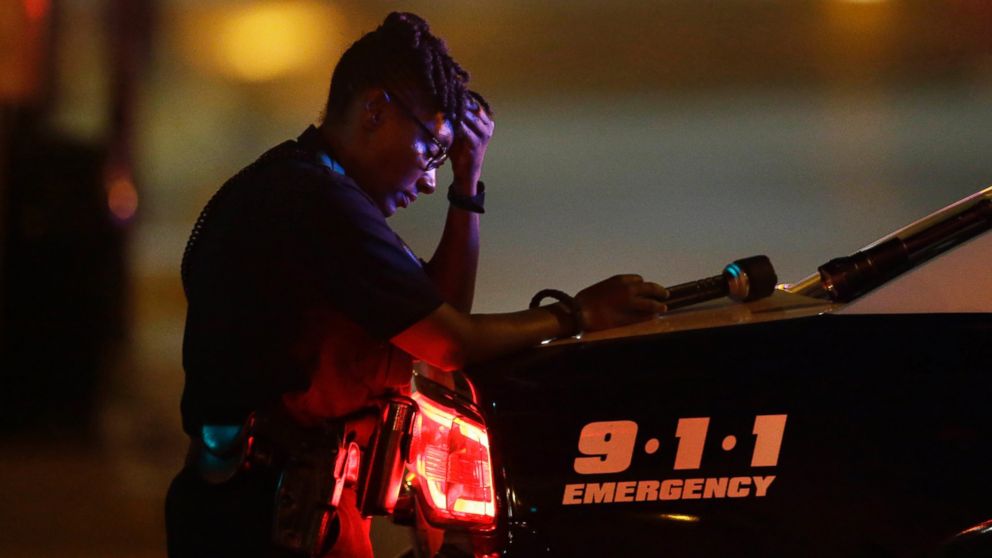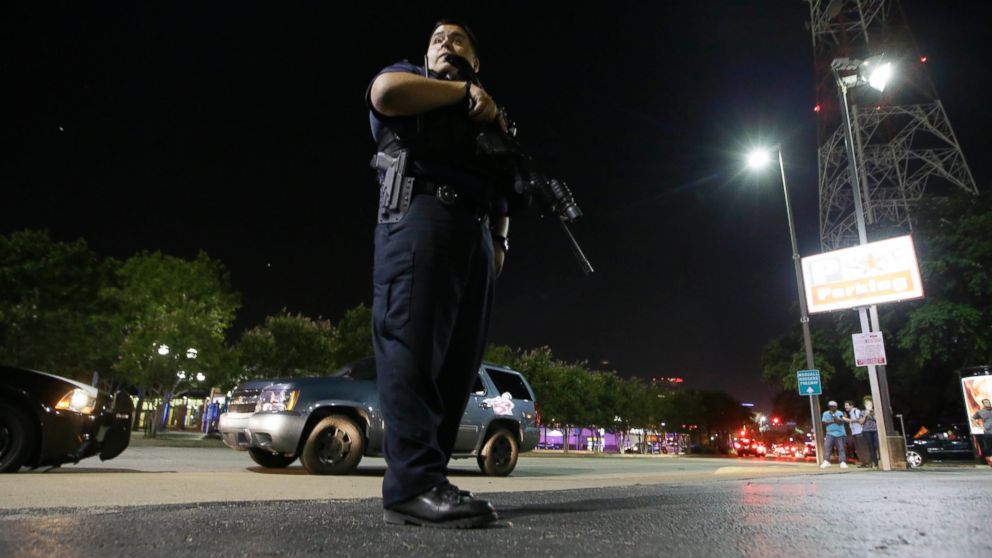Psychology Experts on How Police Cope With Fear, Stress
Police psychologists are trained to help officers cope with stressful jobs.

— -- A spate of violence in recent weeks both by and against police officers has put a spotlight on the unique stressors police face across the country.
In Dallas, Texas, and Baton Rouge, Louisiana, a total of eight officers were killed in two separate incidents in less than a week. Just prior to those shootings, the deaths of two black men by officers in Baton Rouge and Falcon Heights, Minnesota, put scrutiny on police amid increased tensions between law enforcement officials and the communities they serve.
The scrutiny and violence have unnerved police across the country, with many police departments now having officers patrol in pairs or take other steps to protect themselves. Police psychologists say it also has drawn attention to the psychological toll of being an officer in the U.S.
Police psychologists are trained to work with law enforcement to ensure the police officers are mentally fit for duty and help them cope with the high-stress jobs. They explained that officers have to grapple with complicated work that can be emotionally taxing.
"Policing is one of the most complex jobs in the world -- they have to a be a priest, an athlete, a cop, an officer, a lawyer and an enforcer," Ellen Kirshman, a clinical psychologist who has been working with police officers for 30 years, said. "I wish the public understood what policing really entails."

Kirshman said that police have to cope with not just violence, but the pain of seeing graphic scenes or seeing grief-stricken families, which can lead to long-term symptoms.
"Police officers and the nature of what they do and what they are exposed to are vulnerable to PTSD [post-traumatic stress disorder]," said Kirshman. "Anytime you can identify with a victim you are called to, that narrows the emotional and social distance and it makes you more vulnerable to become symptomatic."
Kirshman said incidents like Dallas where officers are targeted or anything involving grotesque images have a bigger impact on officers.
"What makes it worse? Forms of betrayal -- they are feeling betrayed by the communities they work so hard to protect," she said. "You can also be betrayed by your department. You can feel personally betrayed by a fellow officer. Or by your family when they don’t understand what it is you do, or they aren’t interested in what they do.”
To cope, Kirshman recommends peer support and talking to families or others about the stress and anxiety associated with the job. She said police face the difficult task of being compassionate when dealing with a tragedy but not overly identifying with the victim.
"Cops are enormously self-critical -- they have high standards from themselves, 'If I had just not turned left on Elm Street, then so and so wouldn’t have happened....'" she explained. "They suffer from a lot of self-blame."
Laurence Miller, a Florida-based psychologist, works with officers after a shooting or other major incident to determine if they are fit to return to duty. He said most officers get a few weeks off and mental health counseling after an incident.
"In most cases, it’s a nonfatal shooting. Most officers return to work, sadder, wiser, but fit to go back," he said.
Miller said that officers' stress at home can also impact how they cope with a job, all of which can put them under tremendous pressure.
"You’ve got to understand the personality of public safety officers: High performance, excellence, you’re only as good as your last screw-up," he said.
Dr. Shyam Sivasankar is an emergency medicine resident at the Stanford University-Kaiser Permanente program. He is a resident with the ABC News Medical Unit.




